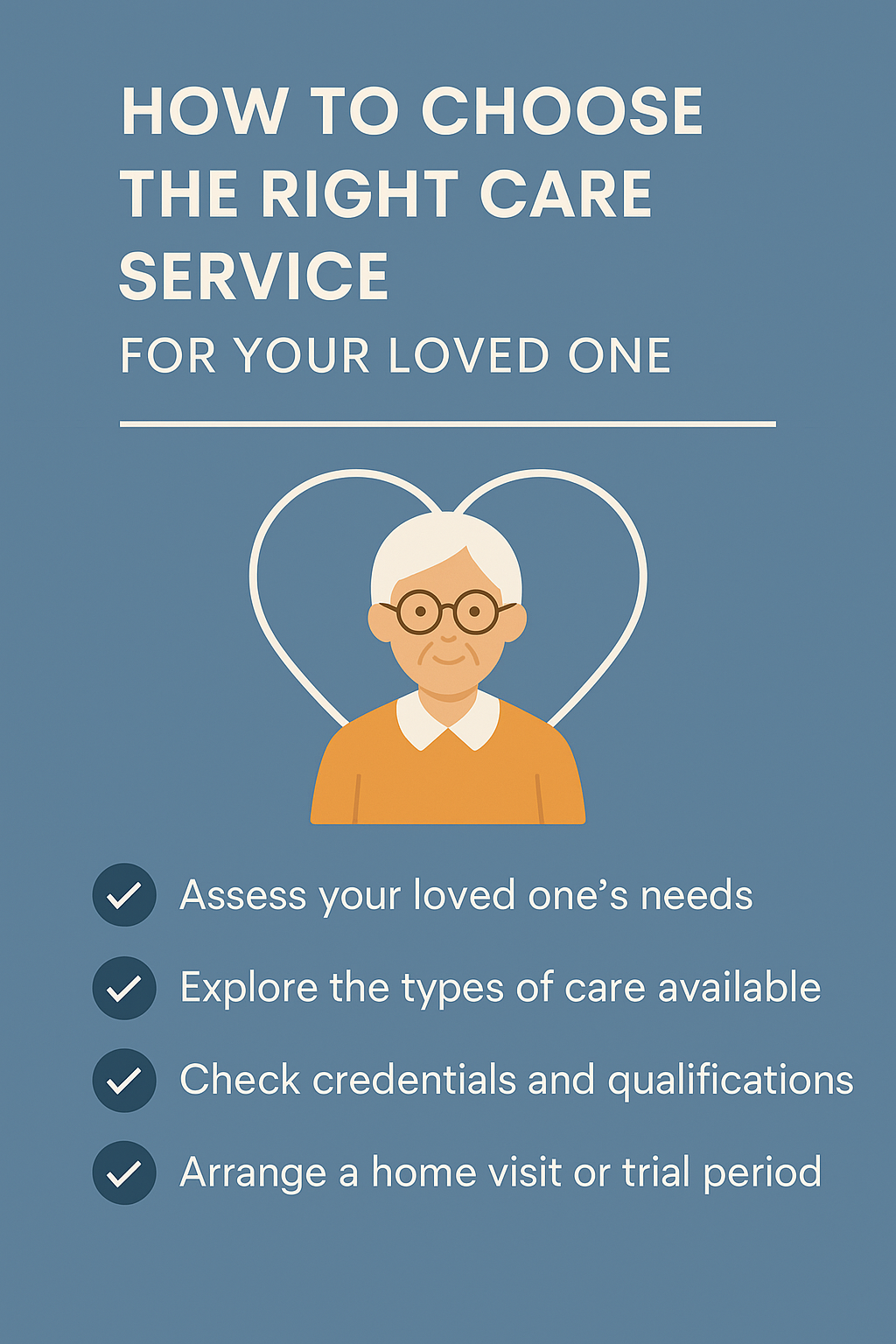Caring for a loved one is one of life’s most important responsibilities. When the time comes to seek professional support, selecting the right care service can feel overwhelming. Whether your loved one requires help with daily tasks, medical assistance, or companionship, the right service can greatly enhance their quality of life. Here’s a helpful guide to support you in making the best decision.
1. Assess Your Loved One’s Needs
Start by understanding exactly what type of support your loved one requires:
- Personal care (e.g. bathing, dressing, mobility assistance)
- Medical care (e.g. medication management, specialist nursing)
- Companionship (e.g. conversation, help with hobbies)
- Household support (e.g. cleaning, cooking, errands)
Creating a list of needs will help match services to requirements more accurately.
2. Explore the Types of Care Available
There are various care options, including:
- Domiciliary (home) care – Care professionals visit the individual at home.
- Live-in care – A carer stays in the home for round-the-clock support.
- Respite care – Temporary care to give family carers a break.
- Specialist care – For conditions like dementia, Parkinson’s, or post-surgery recovery.
Understanding these options helps you choose a service that fits both medical needs and lifestyle preferences.
3. Check Credentials and Qualifications
Always choose a care provider that is:
- Regulated by authorities (e.g. CQC in the UK)
- Employs trained and DBS-checked carers
- Offers ongoing training and supervision
These ensure your loved one is in safe, competent hands.
4. Personalisation Matters
Every person is unique. The best care providers:
- Tailor care plans around the individual’s habits, routines, and personality
- Involve families in planning and decision-making
- Adapt services as needs change over time
Ask providers about their approach to personalised care during consultations.
5. Read Reviews and Ask for Recommendations
Look for online reviews, testimonials, or ask friends, GPs, or local support groups. Real experiences can give you insight into a provider’s reputation, reliability, and care standards.
6. Ask the Right Questions
When speaking with a care agency, consider asking:
- How are carers matched with clients?
- What happens if a carer is unavailable?
- Is there a 24/7 contact line for emergencies?
- Can care plans be adjusted as needs evolve?
The answers will help you gauge the provider’s flexibility and responsiveness.
7. Arrange a Home Visit or Trial Period
Many reputable care services offer free home assessments or trial sessions. This is a great way to see how your loved one connects with the carer and whether the service feels right.
8. Trust Your Instincts
Beyond qualifications and pricing, trust how you feel after speaking with the provider. Empathy, respect, and genuine care should be at the heart of their service.
Conclusion
Choosing the right care service is about more than ticking boxes—it’s about finding a team who will treat your loved one with the dignity, respect, and compassion they deserve. At Graceful Care Services Limited, we’re here to guide you through every step of this journey with professionalism and empathy.
Need help deciding?
Get in touch with us today to book a free consultation.


One response
Hi, this is a comment.
To get started with moderating, editing, and deleting comments, please visit the Comments screen in the dashboard.
Commenter avatars come from Gravatar.